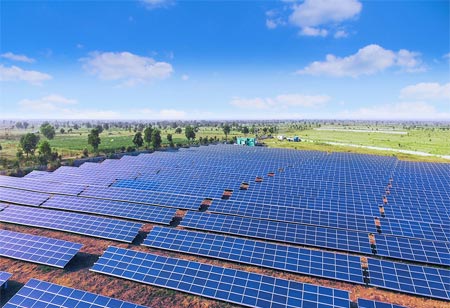According to recent reports, the global solar EPC market is projected to grow at a CAGR of over 2.5 percent to 2025. The global solar EPC market has been displaying a robust growth owing to the renewable integration targets, investment subsidies, and self-consumption scheme, over the last few years. These aforementioned factors have strengthened the business landscape of this market significantly. Other factors further fueling the growth of the solar EPC worldwide include the swift growth in the economy, specifically across developing countries and the surge in the demand for energy.
Solar EPC contractors help companies to commence a solar project by providing them with the detailed engineered design of the project. Solar EPC contractors also known as solar engineers or procurers obtain all the necessary materials and equipment while delivering an asset or functioning facility to customers. One of the greatest advantages of seeking a solar EPC
contractor or procurer is obtaining a complete variety of solar solutions from a single location.
The solar EPC market has witnessed a significant upsurge recently. This is due to the increase in number of installations of roof top units across residential establishments in developed and developing nations. Most of the EPC companies are using these automations in large numbers. These are employed with an aim to improve their service quality. Also, companies want to become more efficient, improve their operational margins and decrease the projects lifetime costs. However, the only way of increasing returns not entirely depends on improving service quality but it also depends on increasing the number of contracts to achieve economies of scale.
For integrated manufacturing of solar modules under the Atmanirbhar Bharat Abhiyan, PSUs such as NTPC, and BHEL may set up polysilicon manufacturing plants in India. These plants are set up with an aim to help reduce India’s dependence on China for the import of wafers, ingots, and cells.
For manufacturers who are willing to set up polysilicon, ingots, and wafers plants in the country, the Ministry of New Renewable Energy is in the process of offering a scheme that will provide financial incentives to these manufacturers.
Anish Rajgopal, Director, Chemtrols Solar said, “It is needed for the country that some companies with deep pockets take the initiative of setting up polysilicon and wafer manufacturing capacity in the country as they are highly capital-intensive. The advantage with polysilicon is they are readily available in the country, although to begin with companies may look at high-quality silicon from abroad, but later they can shift to domestically available silicons.”
